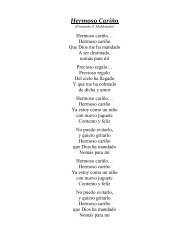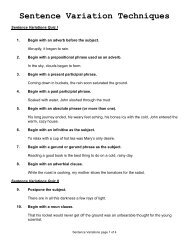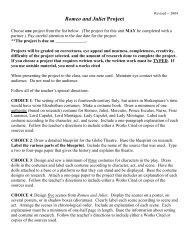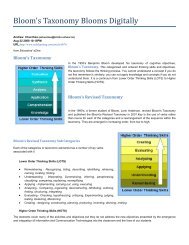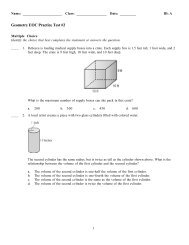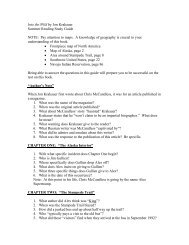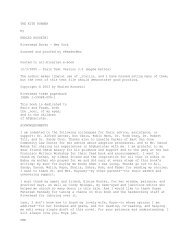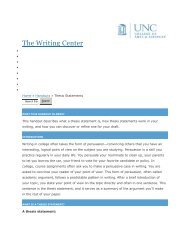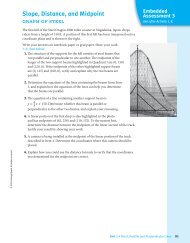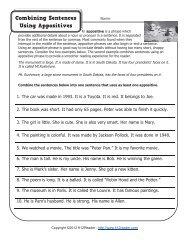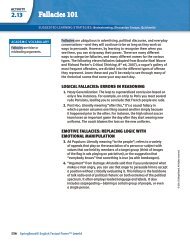Unit 1.pdf - Southwest High School
Unit 1.pdf - Southwest High School
Unit 1.pdf - Southwest High School
You also want an ePaper? Increase the reach of your titles
YUMPU automatically turns print PDFs into web optimized ePapers that Google loves.
Activity 1.20<br />
continued<br />
© 2011 College Board. All rights reserved.<br />
world at all. Yet one must also recognize that morality is based on ideas<br />
and that all ideas are dangerous—dangerous because ideas can only lead<br />
to action and where the action leads no man can say. And dangerous in<br />
this respect: that confronted with the impossibility of remaining faithful<br />
to one’s beliefs, and the equal impossibility of becoming free of them,<br />
one can be driven to the most inhuman excesses. The ideas on which<br />
American beliefs are based are not, though Americans often seem to<br />
think so, ideas which originated in America. They came out of Europe.<br />
And the establishment of democracy on the American continent was<br />
scarcely as radical a break with the past as was the necessity, which<br />
Americans faced, of broadening this concept to include black men.<br />
20 This was, literally, a hard necessity. It was impossible, for one thing,<br />
for Americans to abandon their beliefs, not only because these beliefs<br />
alone seemed able to justify the sacrifices they had endured and the blood<br />
that they had spilled, but also because these beliefs afforded them their<br />
only bulwark 14 against a moral chaos as absolute as the physical chaos of<br />
the continent it was their destiny to conquer. But in the situation in which<br />
Americans found themselves, these beliefs threatened an idea which,<br />
whether or not one likes to think so, is the very warp and woof 15 of the<br />
heritage of the West, the idea of white supremacy.<br />
21 Americans have made themselves notorious by the shrillness and<br />
the brutality with which they have insisted on this idea, but they did not<br />
invent it; and it has escaped the world’s notice that those very excesses<br />
of which Americans have been guilty imply a certain, unprecedented<br />
uneasiness over the idea’s life and power, if not, indeed, the idea’s validity.<br />
The idea of white supremacy rests simply on the fact that white men are<br />
the creators of civilization (the present civilization, which is the only<br />
one that matters; all previous civilizations are simply “contributions”<br />
to our own) and are therefore civilization’s guardians and defenders.<br />
Thus it was impossible for Americans to accept the black man as one of<br />
themselves, for to do so was to jeopardize their status as white men. But<br />
not so to accept him was to deny his human reality, his human weight<br />
and complexity, and the strain of denying the overwhelmingly undeniable<br />
forced Americans into rationalizations so fantastic that they approached<br />
the pathological.<br />
22 At the root of the American Negro problem is the necessity of the<br />
American white man to find a way of living with the Negro in order<br />
to be able to live with himself. And the history of this problem can be<br />
reduced to the means used by Americans—lynch law and law, segregation<br />
and legal acceptance, terrorization and concession—either to come to<br />
terms with this necessity, or to find a way around it, or (most usually)<br />
to find a way of doing both these things at once. The resulting spectacle,<br />
My Notes<br />
14<br />
bulwark: defense<br />
15<br />
warp and woof: foundation<br />
<strong>Unit</strong> 1 • Perception Is Everything 77




